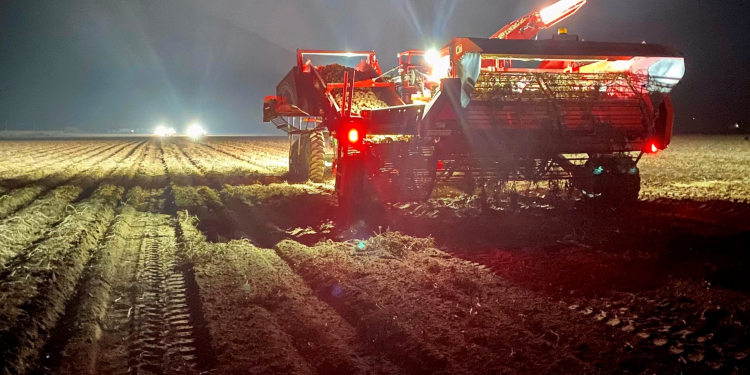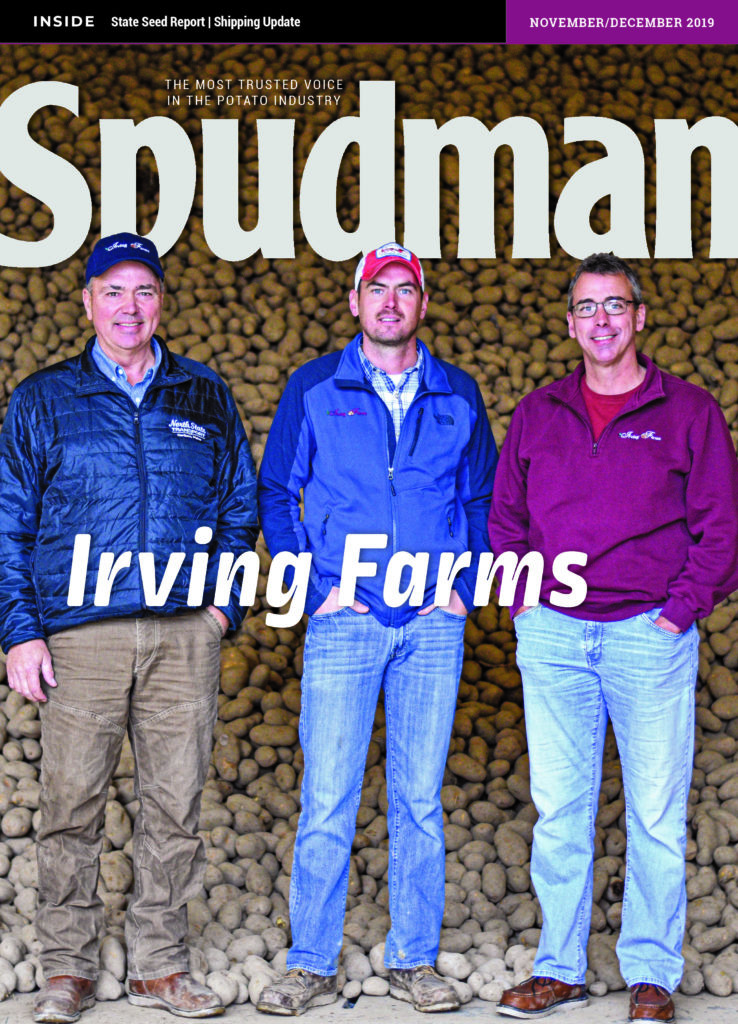Mickelsen Farms was founded in 1988 by brothers Lynn and Dale Mickelsen and Lynn’s son, Mark, but the family’s potato-farming history in southeastern Idaho goes back further than that.
“We’ve been in Idaho forever,” said Andrew Mickelsen, one of Mark’s sons. “It gets blurry when you start looking back, but the way I figure it, I’m a sixth- or seventh-generation Idaho potato farmer.”
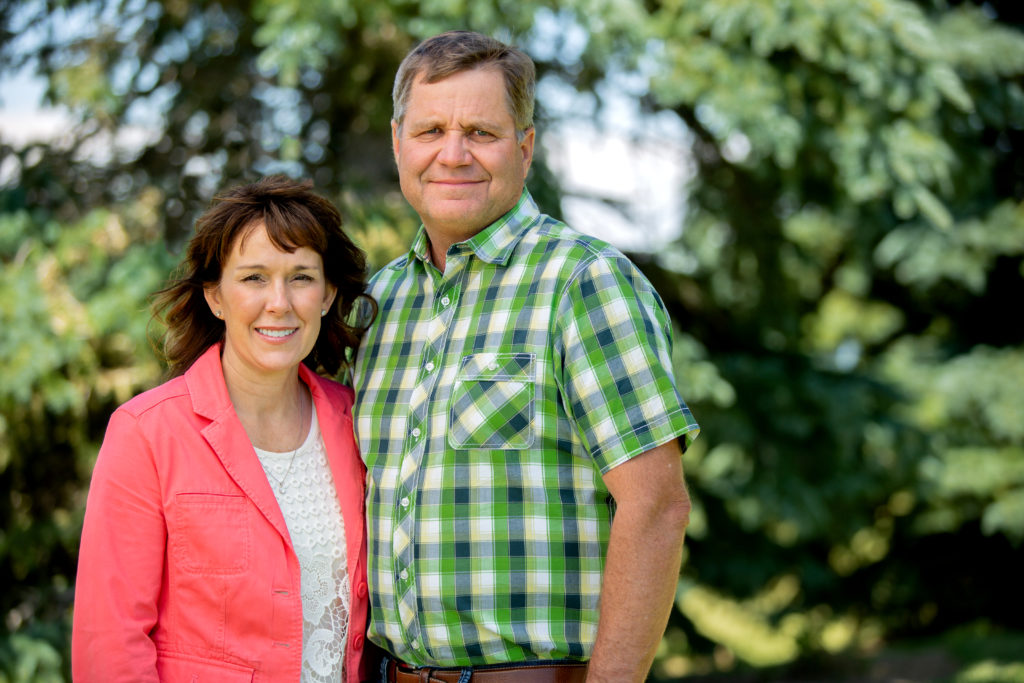
Mickelsen Farms is one of the region’s largest potato producers and its operations include much more than growing potatoes. The Mickelsens grow both commercial and seed potatoes, under the title of Yellowstone Seed, and have two packing facilities that ship under the Rigby Produce label. There also is a processing operation in Rigby, Potato Products of Idaho.
While there are many different arms of the system, all are family-owned and operated.
When it comes to growing potatoes, the farm focuses mostly on the fresh market. They grow almost solely Russet Burbank and Norkotah varieties, including 278, 296 and 3. “We personally like the Norkotahs a little better,” Andrew Mickelsen said. “We think they deliver a little better product for the customer.” They also grow some reds for processing.
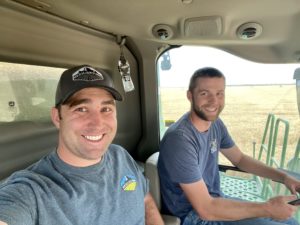
A large operation requires many hands and minds and, fortunately, the Mickelsen family has a lot of members involved. The current crew includes Mark and Stephanie Mickelsen and Dale Mickelsen, who have been there since the current operation was founded in 1988, as well as Andrew, Samuel and Chelsea — three of Mark and Stephanie’s four children — and Dale’s sons, Bryan, Brent and Scott. Mark, Stephanie and their children focus mostly on the farming side of things, while Dale and his sons concentrate on the packing and processing aspects. Responsibilities are fluid, however.
“We believe the entire operation operates as one,” Andrew said. “You have to be integrated with all the other farms. If one farm’s not done, we’re out there at that farm. If the warehouse needs help, we’re there at the warehouse. If the seed needs help, we’re there.”
For more with Andrew Mickelsen and the farming side of Mickelsen Farms, check out episode four of “The Potato Field with Spudman” podcast, available at spudman.com/podcast or wherever podcasts are available.
Getting more involved
With 32 years as the farm’s chief financial officer, Stephanie Mickelsen has witnessed plenty of changes in the operational and administrative side of farming. Keeping up with the ever-growing amount of regulations and standards has become a full-time job in itself, she said.
“In the past, you just grew your crop,” she said. “Because we were an agrarian society, people didn’t really worry about how you took care of your farm. It’s gotten to be a full-time job to meet all the regulations that come with being a business owner. You are expected to know all of these things, so you have to have someone that’s on top of them.”
When pale cyst nematodes (PCN) were found in the region in 2006, the subsequent quarantining and monitoring of fields included some of the Mickelsens’ fields, which they’ve since removed from their operation. The PCN oversight in the region remains ongoing today.
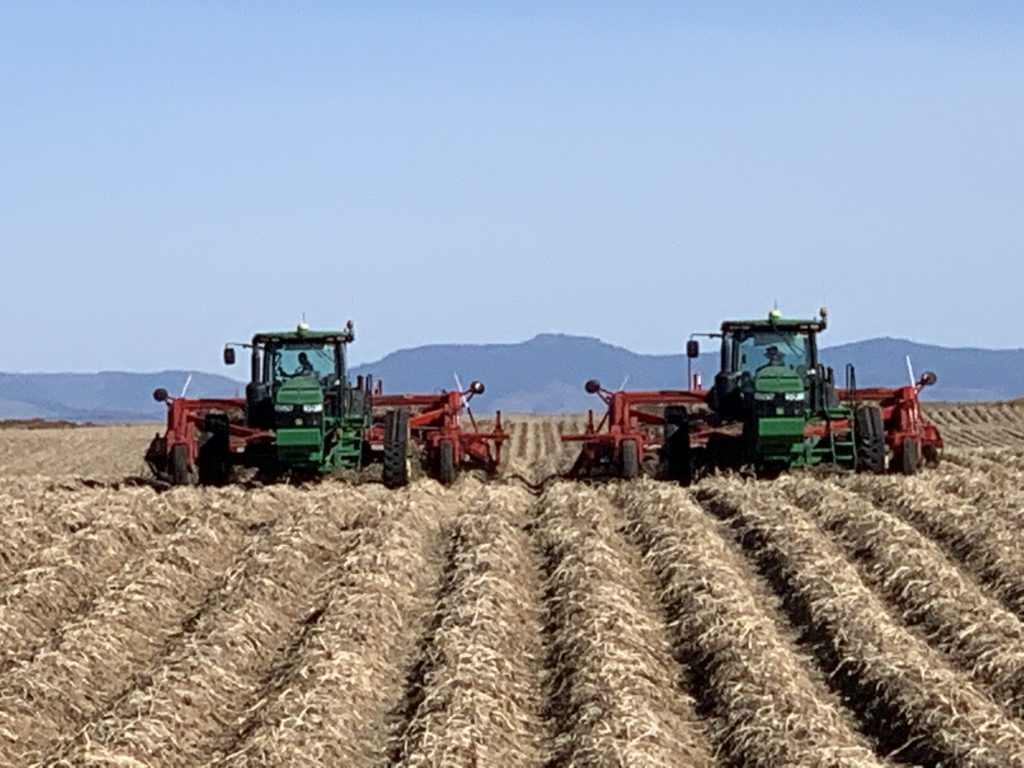
Previously, the Mickelsen family kept to their own operation. The PCN situation and all of the legalities and man hours that came with it started changing their views on getting “out of their comfort zone.” Advocacy and community involvement started to become priorities for Stephanie.
“It really became a necessity,” Mickelsen said. “It really started with Farm Bureau and has kind of evolved from there.”
PHOTO GALLERY: Mickelsen Farms
Today, Stephanie is a state director of the Idaho Farm Bureau, on the board of multiple groundwater-focused organizations and a trustee at the Eastern Idaho Regional Medical Center and College of Eastern Idaho. Mark and Andrew also serve as presidents of Butte Market Lake Canal and Osgood Canal Company, respectively.
“The reason we need to do that is because agriculture is becoming less and less of the population,” Stephanie said. “If we, in agriculture, just stay in our own little community and we don’t get outside our safe zone, we can’t influence policy and people so that we can continue to do what we do.”
With large masses of the population becoming further removed from those who make up agriculture, it’s necessary to take the story of farming to them. Stephanie said many of those who demand certain practices from food production do so without the knowledge of what actually goes on in farming. She used precision irrigation as just one example.
“Look at how advanced our irrigation systems are and how we can monitor precisely how much water we’re using so we’re only using exactly the right amount,” Mickelsen said. “Really and truly, farmers are the best environmentalists and stewards of the land. They really care about what happens to the land, the ground and the water because if we ultimately ruin that resource, we will not farm into the future.”
Mark and Stephanie were once invited to participate at a Land O’Lakes panel at the South by Southwest (SXSW) conference and festival in Austin, Texas, a culture, business and education event that draws an international audience. Stephanie said it was a great chance to engage about certain misconceptions of commercial and “corporate” farming.
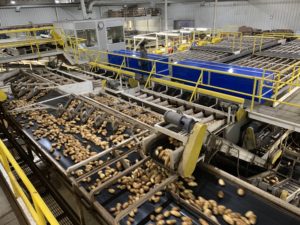
“We have all these millennials and techies that say they want their food grown a certain way, but they have no idea what they’re asking and what that really means,” she said. “I asked them, ‘If I have 5,000 acres, am I corporate farm? If I have 10,000 acres, am I corporate farm? If I have an LLC, but it’s all family, am I corporate farm?’ They said, ‘Well, no, because it’s your family.’
“There are some corporate landowners, but I really don’t know of any corporate farmers. You could tell there were some a-ha moments going on in the crowd because they didn’t realize just how connected we are to our ground and operations.”
The topic of organic versus conventional also arose.
“They had no idea that organic farming actually uses more resources, more fossil fuels, more fertilizers than conventional — they’re just in different forms,” Mickelsen said. “I just don’t think people understand just how much thought and effort and hours go into what we do to show how much we care about the product we put in front of them.”

